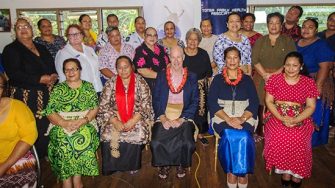Research gives a voice to adolescent girls in Tonga to share experiences and challenges of unplanned pregnancy and motherhood
“Barriers surround us such as taboos for topics including reproductive health, that are not commonly discussed at home and in communities,” said 18 year-old Ana Malia Falemaka, Youth Mentor with the Talitha Project.

